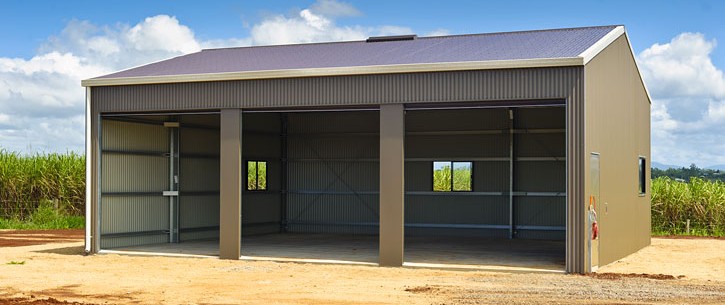Agricultural and farm sheds, or outside buildings, are essential for the running of any large-scale agricultural or animal-rearing projects.
What factors should we consider when installing rural sheds?
When looking out for the best type of shed, several factors have to be taken into account including size, price, and functionality.
Strong and hardy rural sheds are used to keep equipment and machinery safe and secure, used as metal workshops, or as a place to keep and store organic produce or livestock. Farm machinery is an expensive investment and built to be hard-wearing, but theft and accidents do occur, so it makes perfect sense to protect these assets with the most secure and durable units.
In this article, we will explore the process of selecting and installing a shed or outside building that is right for your business holding.
Size Matters
In the world of farming the equipment, products, and structures should be scaled upwards. The larger the amount of produce a farm makes equals the success of the business. Larger rural sheds will always be more useful.
The following points are worth remembering.
- Ensure walkway access to all machinery and equipment.
- Consider the installation of workbenches and work surfaces.
- Consider doors and windows and other features that will improve the overall functionality.
- Leave room for future needs. It is easier to have unused space rather than outgrow a shed quickly.
Placement
When installing an outdoor shed, the location of the placement is essential to maximize function and aesthetics. Important considerations for placement include:
- Ensure the shed receives sunlight to limit moisture and mould.
- Level ground for stability.
- Water flow and rain considerations. Will the unit become flooded? Is it built on higher ground?
- Is it close or visible from, the main property for security purposes.
- Does the installation follow local government regulations?
Materials
We have a number of options when it comes to the materials used to construct rural sheds, each with unique benefits and drawbacks:
- Wooden sheds can be attractive and match home-style aesthetics but will require regular maintenance including frequent staining and sealing using solvents and paints.
- Vinyl and synthetic plastic sheds hold up well to weather and require little maintenance in an area that has non-severe weather systems.
- For extra durability and to keep out pests and rodents then metal sheds are the way forward.
- For extra security and strength, a brick or block-built shed has the advantage of being a permanent structure but on the downside will be much more expensive to build.
Customisable
Large farm sheds can be built from plan or produced to your precise dimensions. From additional doors and windows, choice of materials, extra insulation and additional lean-tos and supports.
In conclusion when considering erecting rural sheds make sure that you ask your vendor about the ability to customize from existing blueprint designs and take into account size, space, and materials required for your project.



